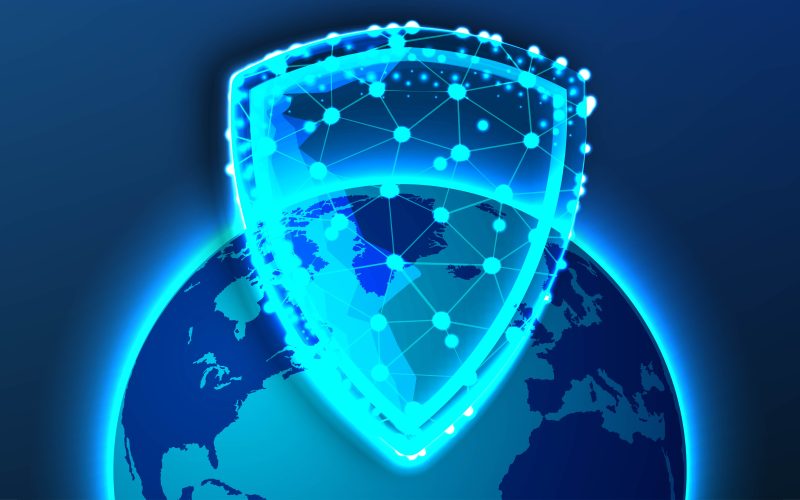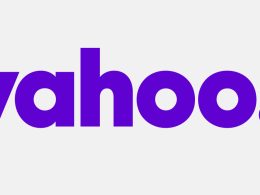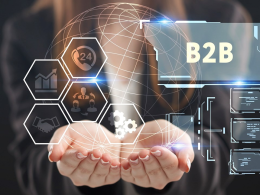Introduction
When blockchain first emerged, public attention focused primarily on cryptocurrencies and market speculation. While decentralized finance and tokenized assets demonstrated the potential of distributed ledgers, a critical question persisted: How can blockchain provide real-world utility beyond trading and hype?
The answer increasingly lies in the convergence of artificial intelligence (AI) and Zero Knowledge Proof (ZKP) technology. Together, these tools transform blockchain from a static ledger into a dynamic, intelligent, and privacy-preserving platform. By combining AI’s predictive power with the cryptographic guarantees of ZKPs, blockchain can finally move from speculation-driven adoption to tangible utility.
Rise of AI and ZK-Proofs in Blockchain
The rise of Artificial Intelligence (AI) and Zero-Knowledge Proofs (ZK-Proofs) in blockchain is transforming the way blockchain technology operates. Blockchain, known for its decentralized and secure nature, has already revolutionized industries like finance and supply chains. Now, AI and ZK-Proofs are adding new layers of functionality.
AI is helping improve decision-making and efficiency, while ZK-Proofs are enhancing privacy and security. AI has been used in blockchain for tasks like smart contract automation, fraud detection, and network optimization. ZK-Proofs, on the other hand, allow blockchain users to prove they know something without revealing the actual data, which is essential for privacy. The combination of these technologies is driving blockchain innovation forward.
Benefits of AI and ZK-Proofs in Blockchain
AI and ZK-Proofs bring many benefits to blockchain. AI improves blockchain’s efficiency by automating tasks, analyzing data, and identifying patterns that humans might miss. This is especially useful in areas like fraud detection, predictive analytics, and optimizing transaction processes.
For example, AI can help determine if a transaction is suspicious or if a smart contract is behaving as expected. On the other hand, ZK-Proofs enhance privacy by enabling users to validate transactions or information without sharing sensitive data. This is crucial for applications like finance, healthcare, and voting systems, where privacy is a top priority. Together, these technologies make blockchain systems more intelligent, secure, and scalable, allowing them to handle complex real-world applications.
Role of AI and ZK-Proofs in Blockchain
AI and ZK-Proofs are playing a key role in making blockchain more adaptable and secure. AI enables blockchain networks to be smarter by optimizing operations and learning from data patterns. For example, AI can help manage the load on a blockchain network, predicting when certain nodes need more resources or when transactions need to be processed faster.
It can also improve smart contracts by making them more autonomous and responsive. ZK-Proofs, meanwhile, are improving blockchain’s ability to protect user privacy and ensure the integrity of transactions. This is particularly important as blockchain grows beyond cryptocurrencies, with applications in supply chains, legal systems, and healthcare. AI and ZK-Proofs together enhance the core principles of blockchain: security, transparency, and decentralization.
How AI and ZK-Proofs Are Blockchain’s App?
Section 1: The Promise of AI on Blockchain
AI enhances blockchain by introducing predictive intelligence and decision-making capabilities into decentralized networks. Smart contracts and decentralized applications are no longer limited to static rules; they can incorporate machine learning to adapt, optimize, and respond in real time. Examples include:
- Dynamic Pricing Models: AI can adjust transaction fees or token incentives based on network activity, demand, or congestion patterns.
- Fraud Detection: Machine learning models can identify suspicious transactions in real time, flagging anomalies before they become systemic risks.
- Predictive Analytics: AI can forecast network congestion, liquidity changes, or market trends, allowing decentralized systems to operate more efficiently.
However, the integration of AI with blockchain introduces two major challenges: privacy and verification. Public blockchains emphasize transparency, which conflicts with the confidentiality requirements of sensitive AI datasets. Additionally, users need assurance that AI computations are accurate, unbiased, and tamper-proof.
Section 2: Zero Knowledge Proofs Privacy Meets Trust
This is where Zero Knowledge Proof technology becomes essential. ZKPs allow one party to prove a statement is true without revealing any information beyond the validity of the claim itself. Applied to AI on blockchain, ZKPs enable:
- Privacy Preservation: AI models can utilize sensitive data—financial records, health information, or proprietary operational metrics—without exposing it publicly.
- Verifiable Intelligence: Every AI-generated output can be accompanied by a Zero Knowledge Proof, ensuring that the computation followed the agreed logic.
- Scalability: Heavy AI computations remain off-chain, while only a compact proof is submitted on-chain, minimizing resource use and cost.
Through this mechanism, ZKPs make it possible to reconcile blockchain’s transparency with AI’s need for data privacy and computation verifiability.
Section 3: The Synergy – AI and ZKP as Blockchain’s Killer App
The combination of AI and ZKP creates a new class of blockchain applications that are not only functional but also privacy-preserving, efficient, and trustworthy. Practical use cases include:
- Decentralized Finance (DeFi): AI models can evaluate credit risk, detect fraudulent activity, and optimize yield strategies. Zero Knowledge Proofs ensure that these computations are verifiable without revealing sensitive financial data.
- Healthcare Applications: AI can analyze patient data to detect diseases or recommend treatments, while ZKPs validate the correctness of these computations without exposing patient information.
- Identity Verification: AI-driven biometric authentication can be verified via ZKPs, confirming authenticity without revealing personal identifiers.
- Supply Chain Management: AI predicts demand, monitors compliance, and detects bottlenecks. ZKPs validate the computations without exposing proprietary operational details.
In each scenario, the combination of AI and ZKP moves blockchain from speculative trading to tangible utility, where real-world applications are both trustworthy and privacy-preserving.
Section 4: Building the AI + ZKP Blockchain Stack
Implementing this “killer app” requires a layered architecture:
- Off-Chain AI Computation: Heavy AI inference or training occurs off-chain to reduce latency and computational cost.
- Proof Generation: Each computation produces a Zero Knowledge Proof, verifying correctness without revealing sensitive inputs or internal model parameters.
- On-Chain Verification: The blockchain only receives and validates the proof, ensuring integrity while maintaining efficiency.
- Feedback Integration: Verified outputs can influence smart contracts, automated decision-making, or further AI predictions, creating a fully autonomous and trust-minimized ecosystem.
This architecture ensures that AI-powered blockchain applications scale efficiently, remain private, and provide verifiable results that users can trust.
Section 5: Advantages of the Convergence
The union of AI and ZKP in blockchain offers unique benefits that address long-standing limitations:
- Trust Without Exposure: ZKPs allow verification of results without revealing underlying data, establishing a trust-first system.
- Scalable Intelligence: Off-chain AI computation reduces on-chain resource consumption, allowing networks to process more transactions efficiently.
- Privacy by Design: Sensitive information is never exposed on the blockchain, aligning with modern data protection standards.
- Dynamic, Autonomous Systems: AI provides predictive and adaptive capabilities, enabling blockchain networks to respond to real-time changes in usage, traffic, or economic conditions.
This combination is poised to redefine the landscape of blockchain applications, shifting the focus from speculation toward utility and real-world adoption.
Section 6: The Road Ahead
The convergence of AI and Zero Knowledge Proof technology represents a paradigm shift in blockchain development. By merging intelligent automation with privacy-preserving verification, developers can build systems that are scalable, trustworthy, and practical.
As adoption grows, we can expect:
- AI-driven DeFi protocols that optimize yields while guaranteeing compliance.
- Privacy-preserving healthcare and identity verification platforms.
- Scalable supply chains and operational networks that balance transparency with confidentiality.
The synergy of AI and ZKP is not just a theoretical concept—it is the foundation for blockchain’s most impactful applications yet. By enabling privacy, trust, and intelligence simultaneously, this combination may finally deliver the long-sought “killer app” that moves blockchain from speculation to essential utility.
Challenges of AI and ZK-Proofs in Blockchain
Although AI and ZK-Proofs bring many advantages, they also come with challenges. For AI, one issue is that it requires large amounts of data and computing power to function effectively. This can make the integration of AI into blockchain networks more expensive and complex, especially for smaller companies.
Additionally, AI algorithms are only as good as the data they are trained on, and if the data is biased or incomplete, it can lead to inaccurate results. ZK-Proofs, while improving privacy, can be computationally heavy and slow down blockchain transactions. They also introduce complexity to the blockchain’s structure, which can make implementation and maintenance difficult. Finally, both AI and ZK-Proofs are still evolving technologies, and their full potential in blockchain is yet to be realized. As these technologies continue to grow, addressing these challenges will be crucial for their long-term success.
Future of AI and ZK-Proofs in Blockchain
The future of AI and ZK-Proofs in blockchain is exciting and full of possibilities. As AI technology becomes more advanced, we can expect it to drive even more sophisticated and autonomous blockchain applications. For example, AI could be used to predict market trends, optimize decentralized finance (DeFi) protocols, or help manage complex smart contracts.
Meanwhile, ZK-Proofs will continue to play a crucial role in enhancing privacy and scalability. With growing concerns over data privacy and security, ZK-Proofs will become more important as blockchain moves into industries like healthcare, government, and finance. We might also see innovations in hybrid systems, where AI and ZK-Proofs work together to create even smarter, faster, and more secure blockchain platforms. As blockchain adoption continues to rise, the combination of AI and ZK-Proofs will be key to overcoming the challenges of scalability, privacy, and efficiency, shaping the future of decentralized technology.
Conclusion: The Future of Blockchain with AI and ZK-Proofs
The integration of AI and ZK-Proofs is transforming the landscape of blockchain technology. These innovations not only address the privacy and scalability challenges faced by blockchain but also enhance its security, efficiency, and usability. As blockchain technology continues to evolve, the combination of AI and ZK-Proofs will likely play a critical role in driving its widespread adoption.
AI offers advanced capabilities such as machine learning, automation, and predictive analysis, while ZK-Proofs provide robust privacy features and scalability solutions. Together, they form the backbone of the next generation of blockchain applications, from decentralized finance (DeFi) to supply chain tracking and beyond.
In the near future, AI and ZK-Proofs will become integral components of blockchain apps, enabling businesses and individuals to take full advantage of decentralized systems while enjoying enhanced security, privacy, and performance. As the technology matures, we can expect even more innovative uses for AI and ZK-Proofs in the blockchain ecosystem, making it more powerful and accessible than ever before.
Visit worldwidedigest for more Articles












